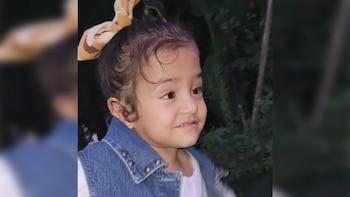
(ATR) Cariocas have seemingly moved on from the Rio Olympics at the ballot box.
In the first post-Olympics election, Cariocas elected an evangelical preacher to be the city’s mayor the next four years. Sitting right-wing senator from Rio Marcelo Crivella received nearly 60% of votes to defeat socialist candidate Marcelo Freixo in the second round of Brazil’s municipal elections. Crivella has been a senator representing Rio de Janeiro state since 2002 for the right-wing Brazilian Republican Party.
Mauricio Santoro, a political scientist from the State University of Rio de Janeiro, told Around the Rings electing Crivella can be seen as moving on from previous mayor Eduardo Paes, and possibly the Olympics.
Throughout his campaign Crivella criticized Paes’ plans for Olympic legacy. He commented frequently on how many of the construction projects were linked to firms embroiled in the Lava Jato corruption scandal. Currently, no projects brokered by Rio City Hall have been found to be corrupt but investigations into contracts were launched just before the Games began.
Paes' preferred candidate Pedro Paulo, from the Brazilian Democratic Movement Party, came in third during the first round of the municipal elections.
"Faced with the serious problems that the city faces due to the many crises in Rio, the Olympics are likely to be like an old memory," Santoro said. "[The Games] may occasionally appear in discussions about the legacy, for example the fate of the Olympic Village, or the difficulty completing works."
Crivella’s establishment in Brazilian politics poses an advantage for transitioning into his mayoral role according to Santoro. Crivella’s time in the senate and as a minister has allowed him to accumulate "many allies, and the support of the city council."
However, Crivella will have to overcome his ties to the Universal Church of the Kingdom of God to regain the public’s trust in his mandate. Crivella’s uncle Edir Macedo formed the evangelical church in 1977, and Crivella served as a pastor in the church since its beginning. Eventually, Crivella rose to the rank of bishop, and his election victory is the first for an evangelical in an executive office in Brazil.
Citizens of Rio worry that Crivella's evangelical ties will clash with the traditional openness the city is known for worldwide. Rio is seen as having some of the most LGBTQ friendly areas in Brazil, and the yearly Carnaval celebration is an alcohol-soaked month long party. Crivella has said he would not infringe on citizen's rights or attempt to alter festivities after his election victory.
Municipal elections around Brazil in 2016 were seen as a reaction to the 2015 political crisis. In Rio, large numbers of Cariocas voted for neither mayoral candidate in the run-off. Throughout Brazil, many municipal elections were won by political outsiders, showing the population’s disgust with the ruling elite.
According to election results, 719,402 people voted in the election for neither candidate. In addition, just over 1.3 million people failed to vote at all, although voting in Brazil is mandatory. The combined number is larger than the just over 1.7 million votes Crivella received.
Santoro says Crivella will have to deal with "chronic problems of Rio de Janeiro," such as transport issues and public health and safety. He steps into office in a time where the state of Rio de Janeiro is "completely broke," and a security crisis led to the resignation of state security minister Mario Beltrame. Santoro says his main job is to navigate the crisis and contain the "negative effects [of the crisis to] the city."
Written by Aaron Bauer
20 Years at #1: Your best source of news about the Olympics is AroundTheRings.com, for subscribers only.
Últimas Noticias
Utah’s Olympic venues an integral part of the equation as Salt Lake City seeks a Winter Games encore

IOC president tells Olympic Movement “we will again have safe and secure Olympic Games” in Beijing

Boxing’s place in the Olympics remains in peril as IOC still unhappy with the state of AIBA’s reform efforts

IOC president details Olympic community efforts to get Afghans out of danger after Taliban return to power

North Korea suspended by IOC for failing to participate in Tokyo though its athletes could still take part in Beijing 2022




